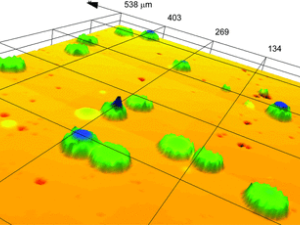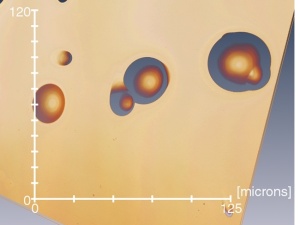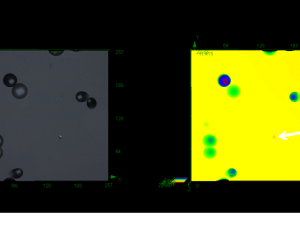Custom Design of Protein Particles as Multifunctional Biomaterials
Abstract
Assembled protein particles, as emerging biomaterials, have broad applications ranging from vaccines and drug delivery to biocatalysis and particle tracking, but to date these require trial-and-error rational design experimentation and/or intensive computational methods to generate. Here, the authors describe an easy-to-implement engineering strategy to generate customized protein particles as multifunctional biomaterials. They utilize protein–peptide modules to generate functional nanoparticles whose assembly and size is controlled by the addition of mild stimuli. The protein assembling method is versatile, as exemplified through particle formation with 7 distinct protein modules, using a variety of assembly conditions tailored by the chemistries of 3 peptide partners. They have generated customized protein particles using enzymes, binding and reporter proteins, and their functions and utilities are demonstrated using biocatalysis, sensing, and labelling applications, respectively. Furthermore, co-assembly with two functional proteins within one particle has been successfully achieved and demonstrated. Physical insights into the kinetics and molecular mechanisms of particle formation are revealed by small angle X-ray scattering and mass photometry, providing fundamental knowledge to guide design and manufacture these interesting biomaterials in future. Their protein assembling strategy is a reliable method for fabricating a protein particle to deliver new functionalities on-demand.
Full article:
Source: Preview Image: Design Cells/Getty Images



